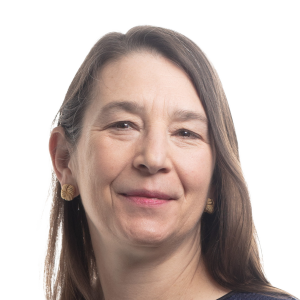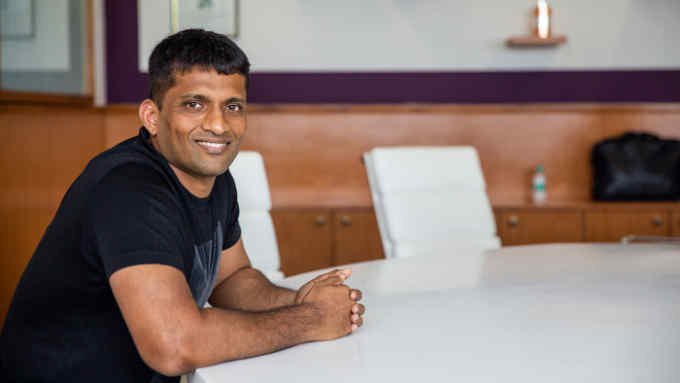Why picking a winning bold business is so risky


Roula Khalaf, Editor of the FT, selects her favourite stories in this weekly newsletter.
This article is part of the FT/ArcelorMittal Boldness in Business awards, recognising companies and individuals with novel answers to everyday needs.
Every time we at the Financial Times sit down to select the winners of Boldness in Business, I am reminded just how hard it must be to run a venture capital fund.
That is because we find ourselves having to make judgments about companies that are still in the early stages of their development. Often they do not have much of a financial record and their products are still being perfected, so it is hard to predict whether their early promise will pan out.
In fact, research by Shikhar Ghosh, a senior lecturer at Harvard Business School, suggests that three out of four venture-backed companies don’t return investors’ capital, including about one-third that lose all of it.
At the Boldness awards, we like to reward chutzpah and hustling — in 2015, we named Uber co-founder Travis Kalanick Person of the Year, and stood by that decision even as the ride-hailing company ran into regulatory trouble and drew criticism for its culture. Some of our other early winners have also struggled amid rising competition and changing habits — among them GoPro and Groupon.
It is particularly challenging to pick winners among companies seeking to innovate in healthcare, agriculture or food. If a social media app or a new video tool doesn’t take off, it is disappointing. But if food or medicine does not work properly, the product can hurt people or even kill. Investors and judging panels like ours have a responsibility not to add to unmerited hype.
Consider the cautionary tale of Theranos, the California-based blood-testing company. Founded by Elizabeth Holmes in 2003, the company claimed its new, tiny machines would revolutionise blood testing with a new automated technique that required only a pinprick of blood. It attracted a superstar board of directors and signed a partnership with US drugstore chain Walgreens.
Theranos’s valuation peaked at more than $10bn before questions were raised about the validity of the test results the company provided. The company ceased operations in 2018 and Holmes is awaiting trial on charges of criminal fraud and conspiracy. Prosecutors allege that hundreds of patients, or their medical insurance companies, paid for the blood tests, some of which were “inaccurate, unreliable, and improperly validated”. She has pleaded not guilty.
But fraud is far from the only risk. Sectors such as pharmaceuticals and medical devices are — quite rightly — highly regulated, and agencies such as the US Food and Drug Administration insist on careful testing for both safety and efficacy before they are willing to approve a product for human use. Government healthcare providers, such as the UK’s National Health Service, also insist on proof that the product provides value for money before agreeing to pay for it.
Many healthcare products fall at the first hurdle, or see their potential returns limited by the second. In February, Alzheimer’s drugs made by Eli Lilly and Roche each disappointed in late-stage testing.
This year, the Boldness panel considered some very compelling entries in the healthcare and food sectors for the technology category. The shortlist included Brainomix, which is leading efforts to revamp the diagnosis and treatment of strokes by using artificial intelligence to analyse CAT scans, as well as Neuralink, the Elon Musk-backed start-up seeking to use brain implants to help people communicate with machines.
In the smaller company category, we shortlisted Solar Foods, a Finnish start-up that is trying to develop a resource-light alternative to animal and plant-based protein using greenhouse gas-based fermentation.
In the end, the judges gave the technology prize to Healthy.io, an Israeli health start-up specialising in smartphone-enabled urine analysis. It started by addressing a common but serious problem: urinary tract infections are the most common bacterial infections in humans, causing an estimated 8m physician visits and 2m emergency hospital visits in the US each year. The company’s home testing enables patients to obtain treatment faster and reduces unnecessary doctor visits and overprescription of antibiotics. It won approval from the FDA in 2018, making it the only smartphone-based urinalysis cleared as equivalent to lab-based testing.
Last September, Healthy.io raised another $60m and the FDA approved another of its tests; this one is aimed at diagnosing chronic kidney disease.
The winning smaller company was Ÿnsect, a French start-up that is raising insects for pet and fish feed and fertiliser.
Despite our caution when it comes to human health, the judges continue to reward ambitious dreams and efforts to improve society. Last year’s winners included Lilium, a German company trying to build electric flying taxis, and this year we picked Byju’s, an Indian online education company that is trying to use technology to tackle the problem of poor or uneven quality education with online or tech-based lessons and practice in multiple languages.

Comments